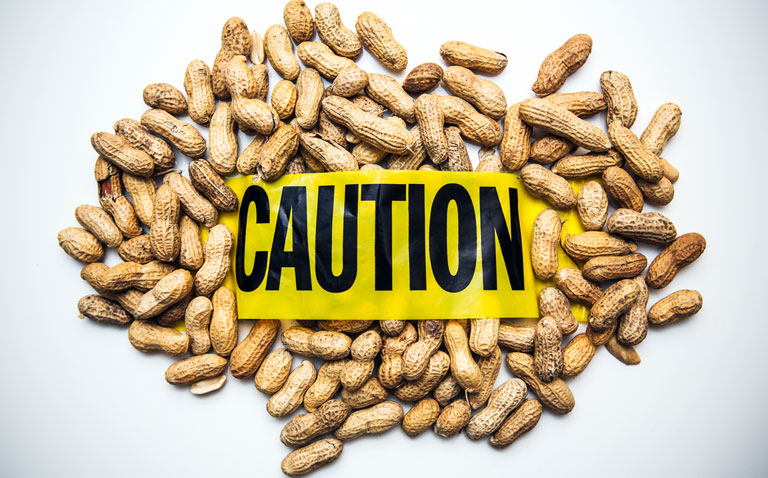Researchers from King’s College London have found that a potential treatment for peanut allergy provides some degree of protection but does not cure an allergic patient and this could explain why allergic reactions are still observed during treatment.
In the study, published in The Journal of Allergy and Clinical Immunology, researchers tested samples from patients who suffer from peanut allergy with peanut oral immunotherapy (POIT) and found that it does not stop them being allergic just suppresses the reaction.
In this study, the researchers tested samples from peanut allergic patients who underwent POIT and found that although POIT does suppress allergic reactions, when the protective antibodies were removed, the allergic cells are still as reactive as before treatment. These findings support the concept that while POIT can provide some protection it does not ‘cure’ the allergies.
Lead author, Dr Alexandra Santos, King’s College London and Evelina London Children’s Hospital commented “Peanut oral immunotherapy can confer some protection to accidental exposure to peanut as a result of the so-called ‘blocking antibodies’ and shown by the reduction in the reaction of allergic cells after treatment but if we remove these ‘blocking antibodies we could see that the cells are still as reactive as before, confirming that the patients were still allergic and need to keep going with the POIT regimen to maintain the protection.”
The authors used a test known as mast cell activation test (MAT) to confirm whether the patients are still allergic after POIT and need to continue taking peanut as per POIT regimen or are no longer allergic and can eat peanuts freely.
The next steps in the research are to validate these findings in other cohorts of peanut allergic patients treated with POIT and confirm that the MAT is useful to monitor patient’s response to this treatment.
Dr Santos said: “Definitive treatments for peanut and other food allergies are highly needed. Currently, immunotherapy is the only treatment option we can offer peanut allergic patients, mostly through clinical trials as this is not yet available on the NHS. Immunotherapy can be delivered by ingestion (oral immunotherapy), under the tongue (sublingual) and applied to the skin as a patch (epicutaneous immunotherapy). To a greater or lesser extent, the different forms of peanut immunotherapy can make allergic patients less sensitive, which can protect them from accidental exposure, but patients remain allergic.”










